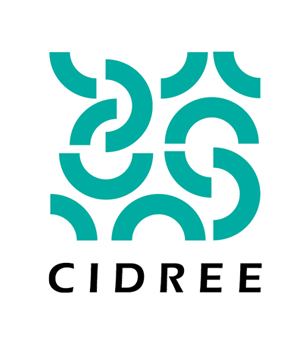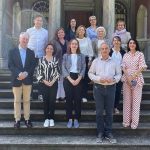What should be part of the core curriculum and what should not? Ninety-seven education specialists from eighteen different European countries considered this question during the annual CIDREE conference. This year’s conference was organized in Brussels by AHOVOKS.
As is the annual tradition, the yearbook was presented during the conference in which the theme, the core curriculum, was approached from the context of the different countries. What constitutes the core of the curriculum varies per country; some countries give it a rather narrow interpretation, others a broad one. There are also many differences to which students the core curriculum applies and who is responsible for its development. The yearbook provided inspiration for the conference.
After the welcome by Ingrid Vanhoren, CEO and head of the Qualifications and Curriculum department of AHOVOKS, it was time for the first keynote speaker: Erik Meester, educational developer at Radboud University in Nijmegen. He emphasized the importance of knowledge in education; knowledge is actually the basis on which everything is based, explicitly and implicitly. According to him, anyone who indicates that knowledge education is outdated in times of the ubiquitous Internet is confusing information with knowledge. Afterwards, Dries Froyen (CNC, AHOVOKS) took the floor to introduce the authors of the yearbook articles to the audience and to formulate a brief reflection on their contribution.
After a short coffee break, the participants were divided into three thematic groups that each visited four posters about the articles in the yearbook, with one of the authors providing explanations. There was a group on stakeholder involvement, one on transversal skills and one on curriculum implementation. The concept led to inspiring conversations. The poster fair concluded with a networking lunch.
The afternoon kicked off with workshops in which participants could reflect on the purpose and scope of the core curriculum through two interactive methods. The core curriculum in 2050, the role of values and norms in a core curriculum and success factors for implementing a new curriculum were also discussed. An hour is too short to cover everything in depth, but it clearly showed that there is a need for international exchange of expertise.
The afternoon continued with a presentation by Susanne Conze from the Directorate-General Education, Youth, Sport and Culture within the European Commission. She reflected on why the EU has developed key competences, what the most important revisions were in 2016-2018 and how key competences can be dealt with in the future.
Jindra Divis, Chairman of the CIDREE Network, closed the conference.
Based on the responses, it was an interesting day for the participants. But judge for yourself based on the following video report, thanks to the students of a film school in Brussels: Link. Thank you to everyone who participated and contributed to the conference!



